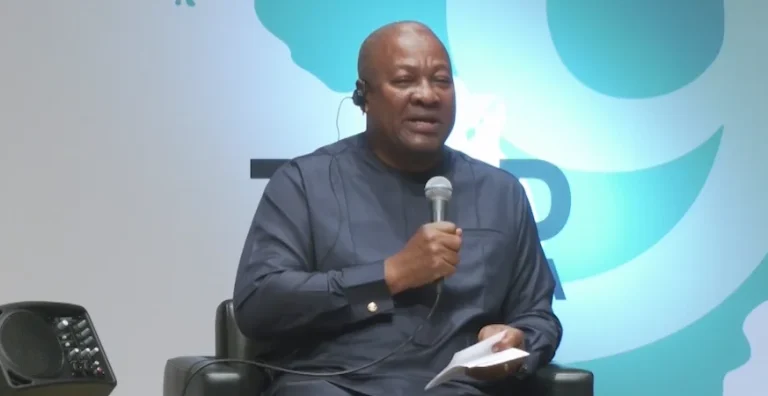|
Getting your Trinity Audio player ready...
|
At TICAD-9, President Mahama says governments must back youth-led industries to turn the demographic boom into jobs now
President John Dramani Mahama has urged African governments to prioritise youth-led creative and digital industries including fintech, content and design, renewable energy services, and agritech karguing these sectors are creating jobs faster than traditional agriculture and manufacturing.
Speaking during a Private–Public Business Dialogue at TICAD-9 in Yokohama, Mahama said Africa’s age structure makes investment in youth-driven industries non-negotiable. “You can’t build a successful economy without investing in the youth,” he noted, warning that if job creation lags the continent’s population growth, the so-called demographic dividend could become a “powder keg.”
Why creatives and digital matter
Mahama said the creative economy and digital services absorb talent quickly and spin off new roles from software and payments to production, marketing, and distribution “at a pace that outstrips legacy sectors.” He pointed to fintech and agritech as stand-out examples of youth innovation reshaping markets and inclusion. Citing Ghana, Mahama described a youth-built platform that onboards farmers by mobile, tailors input distribution by acreage and need, extends digital credit, and then off-takes harvests at season’s end. The data trail allows farmers to build credit scores, flips guesswork to precision, and raises productivity and repayment all while creating high-skill jobs across the value chain.
What government should do
Mahama called for a partner mindset toward business and warned against over-regulation that slows startups before they begin. Priority actions he outlined:
-
Lighten licensing and approvals so innovators can launch and iterate.
-
Ensure predictable rules and profit repatriation to attract long-term capital.
-
Invest in the “plumbing” of growth reliable connectivity, payments, and logisticsso digital firms can scale across borders.
“The public sector must see the private sector as a partner, not an irritant… We should not over-regulate; give innovators the space to exercise their creativity.”
Mahama framed AfCFTA’s 1.4-billion-person market as a demand engine for creative and digital services, provided countries fix bottlenecks that make intra-African trade slow and costly. With Japan’s technology and Africa’s young talent, he said, co-creation can translate into jobs “now, not in the far future.”
Source: myghanadaily


